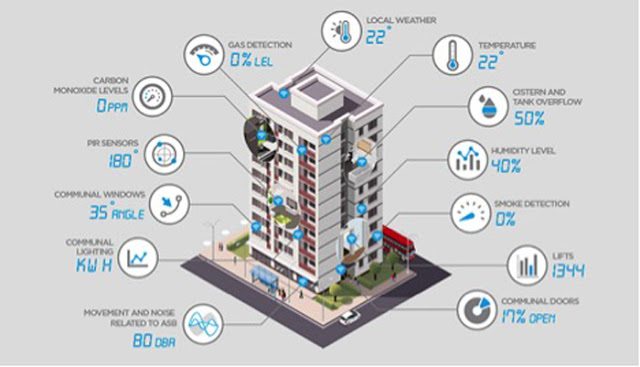How are co-living spaces revolutionizing the residential property market?
The Indian
property market has witnessed a fascinating transformation as far as
residential structures are concerned. With rise in social and civic
infrastructure, residents are able to avail seamless connectivity benefits to
the rest of the city. The increase in urban population has increased the need
for affordable housing across emerging metropolitan cities. Prominent property
developers are capitalizing on key aspects in order to cater to these rising
residential demands. Recent property trends showcase that millennial and IT
professionals consider residing as tenants rather than transitioning to
first-time property aspirants. With busy work schedules, it becomes convenient
to save up on a monthly basis as tenants for a secured future. Private
organizations are now coming up with co-living spaces that are the need of the
hour. In order to get away from a monotonous lifestyle, the working-class crowd
are choosing to live in co-working spaces for community enrichment benefits. Concorde Auriga is one of the upcoming properties where one can invest into it.
Metropolitan cities like Bangalore, Mumbai and Hyderabad are witnessing an
evident rise in such spaces that are gaining popularity. With the rental
housing segment creating more profits, millennials are concentrating on key
co-living spaces in order to maximize commute benefits and lead a sustainable
lifestyle. Residents who are not yet married or have a family in the same city
are now spoilt for choice as there are many co-living spaces that are providing
fully furnished homes along with diverse utility variants. With an extensive
millennial or workforce population around metropolitan cities, property owners
can expect customers from different walks of life. This enables homeowners to
create strategic spaces and make the most of the current and future market
trends for rental returns.
Engage in community enhancement activities
Along with
occupying pre-owned residential spaces, it becomes important to engage
ourselves into community upliftment programs. Staying in co-living spaces would
help customers communicate, interact with like-minded residents and employ an
approach in order to participate and feel engaged in community enhancement
activities. For instance, Bangalore as the IT capital of India provides high
profiled employment prospects in the IT sector. Abundance in co-living spaces
provides sustainable alternatives to choose from. In fact, such co-living
spaces conduct workshops and contribute to socially interactive possibilities.
On the contrary, staying in PG’s and hostels involve a lot of restrictions with
fewer or no amenities for a comfortable living experience.
 |
| Concorde Auriga |
Capitalize on high returns on investment with co-living spaces
Though there
are many benefits for prospective tenants living in co-living spaces, as
investors, one can grab on to land appreciation trends and double up on an
alternate source of income. Prominent start-ups like Oyo homes, Nestaway and
CoHo Living are effectively contributing to creating more spaces and catering
to rise in residential demands. As per real estate firms like Anarock, the
co-living property market sector is backed up with heavy potential investors
like Goldman Sachs and Sequoia Capital. Individual investors also can benefit
from this as they can design their home as per customer requirement and convert
their space into a co-living environment for maximum rental gains.
Challenges faced in constructing co-living spaces
Apart from
the numerous benefits that can be enjoyed by living in co-living spaces, there
are challenges that potential property owners and developers need to overcome.
Creating such places need surplus funds, from operational costs to optimum
space utilization, residents should be aware of maintenance and servicing costs
before they invest in unique residential spaces. Location and connectivity are
yet another hassle. Co-living spaces thrive only when they are located at
emerging areas that provide seamless connectivity. Homeowners who plan on
converting their space into a co-living property should consider individual
aspects and customer convenience & comfort at the same time. Co-living
spaces are usually priced high when compared to traditional spaces like hostels
and paying guest homes. Residents, who are new to the city mostly aren’t able
to afford living and paying high rents on a monthly basis.



Comments
Post a Comment